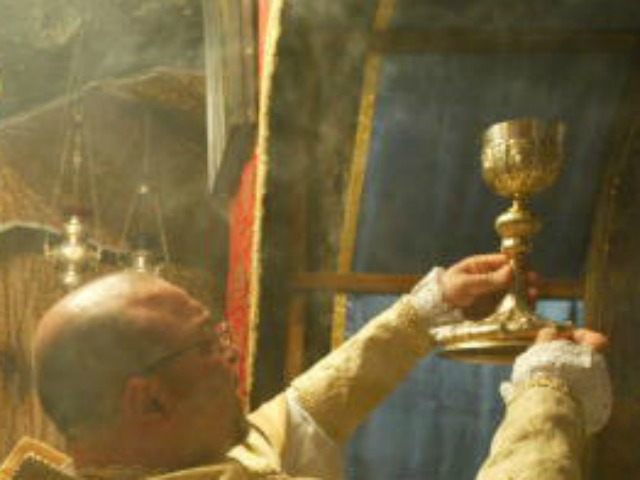Catholic Cardinal Daniel Sturla wants “flexibility” in the application of a new law requiring zero blood alcohol for Uruguayan drivers, insisting that a priest who says Mass necessarily consumes some wine during the ceremony.
On Monday Uruguayan President Tabare Vazquez signed a new law tightening previous blood alcohol limits for drivers from a maximum concentration of 0.3 grams of alcohol per liter of blood to a new zero blood alcohol policy.
In his yearly Christmas message, Cardinal Daniel Sturla, the archbishop of Montevideo, asked to study the possibility of relaxing the zero tolerance rule for priests who drive. Sturla explained that “when celebrating Mass a priest drinks a little alcohol.”
In the message, which was later broadcast over Uruguayan radio, Sturla added, “I suppose that there will be enough common sense in interpreting the ‘zero’ to not give problems to a priest who has drunk just what is obligatory for Mass.”
“I raised the issue with some of the authorities but have not yet received a response. We will see what happens,” the cardinal said.
According to Catholic doctrine, during the Mass the wine actually becomes the blood of Christ during the consecration, when the priest holds up the chalice and repeats the words of Jesus: “Take this, all of you and drink from it, for this is the chalice of my blood, the blood of the new and eternal covenant, which will be poured out for you and for many for the forgiveness of sins. Do this in memory of me.”
Catholics believe that despite this change, the consecrated blood of Jesus retains the external characteristics (“accidents”) of wine, such as its taste, color and inebriating effects.
Last February 14, Pope Francis made Sturla a cardinal along with 14 others in a consistory at the Vatican. Sturla is only the third Roman Catholic cardinal in Uruguay’s history.
Uruguay’s national zero-tolerance law will become effective a little over a week after the New Year’s holidays.
According to a report from the Transportation Authority (Unasev), during the first half of 2015 some 9,000 alcohol checks were performed on drivers involved in road accidents. Nearly 93% had no alcohol in their blood; 1% had less than the legal limit of 0.3 g / liter, and the remaining 6% had a higher blood alcohol level than the limit.
The new law is part of a plan by President Vazquez to combat problem drinking. Uruguay’s Health Minister, Jorge Basso, announced last week that “more than 260,000 people are affected by problematic consumption of alcohol.”
In the coming year, the government intends to address the question of alcohol advertising and the publication of warnings of the dangers of alcohol in print, radio and television media.
Follow Thomas D. Williams on Twitter @tdwilliamsrome

COMMENTS
Please let us know if you're having issues with commenting.